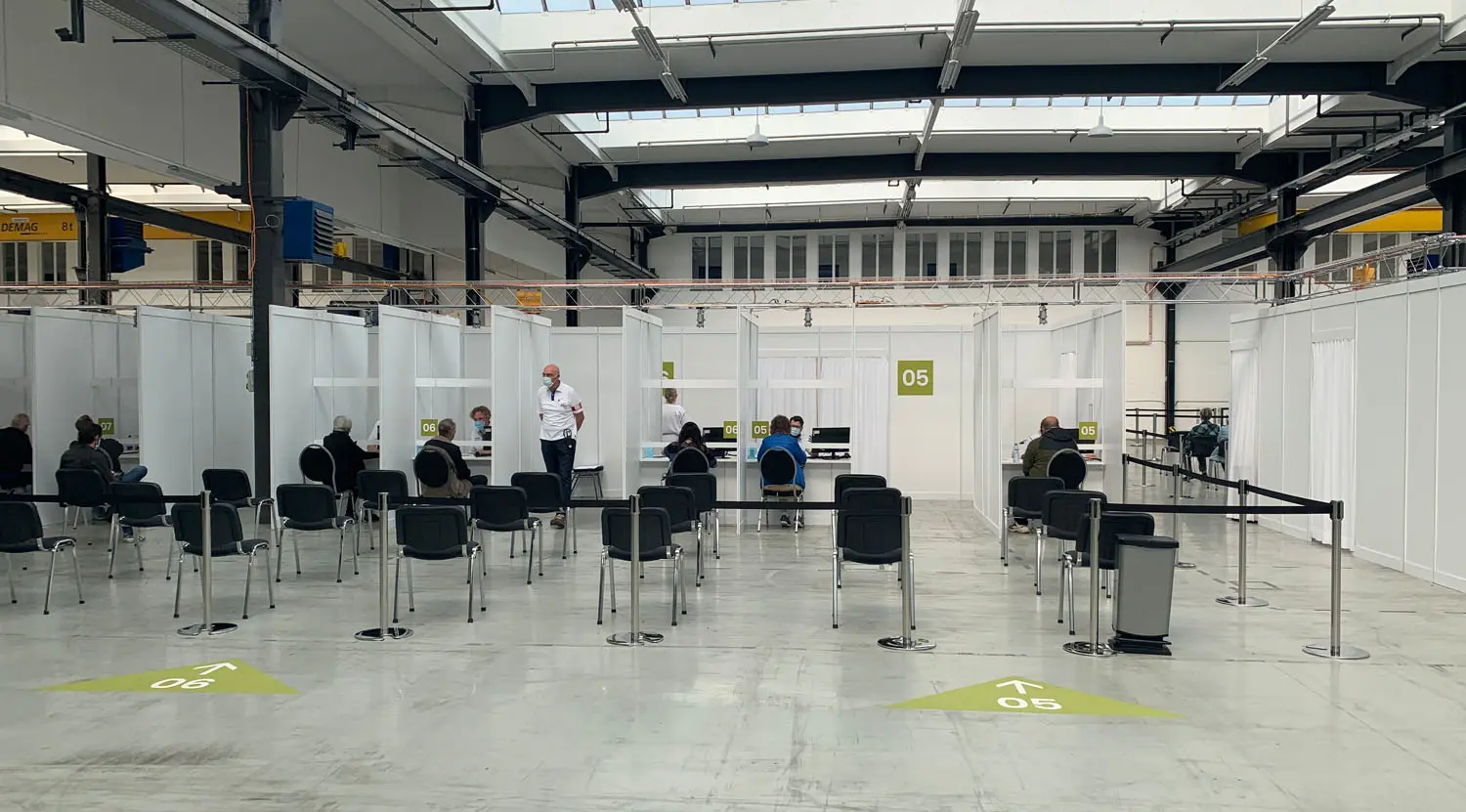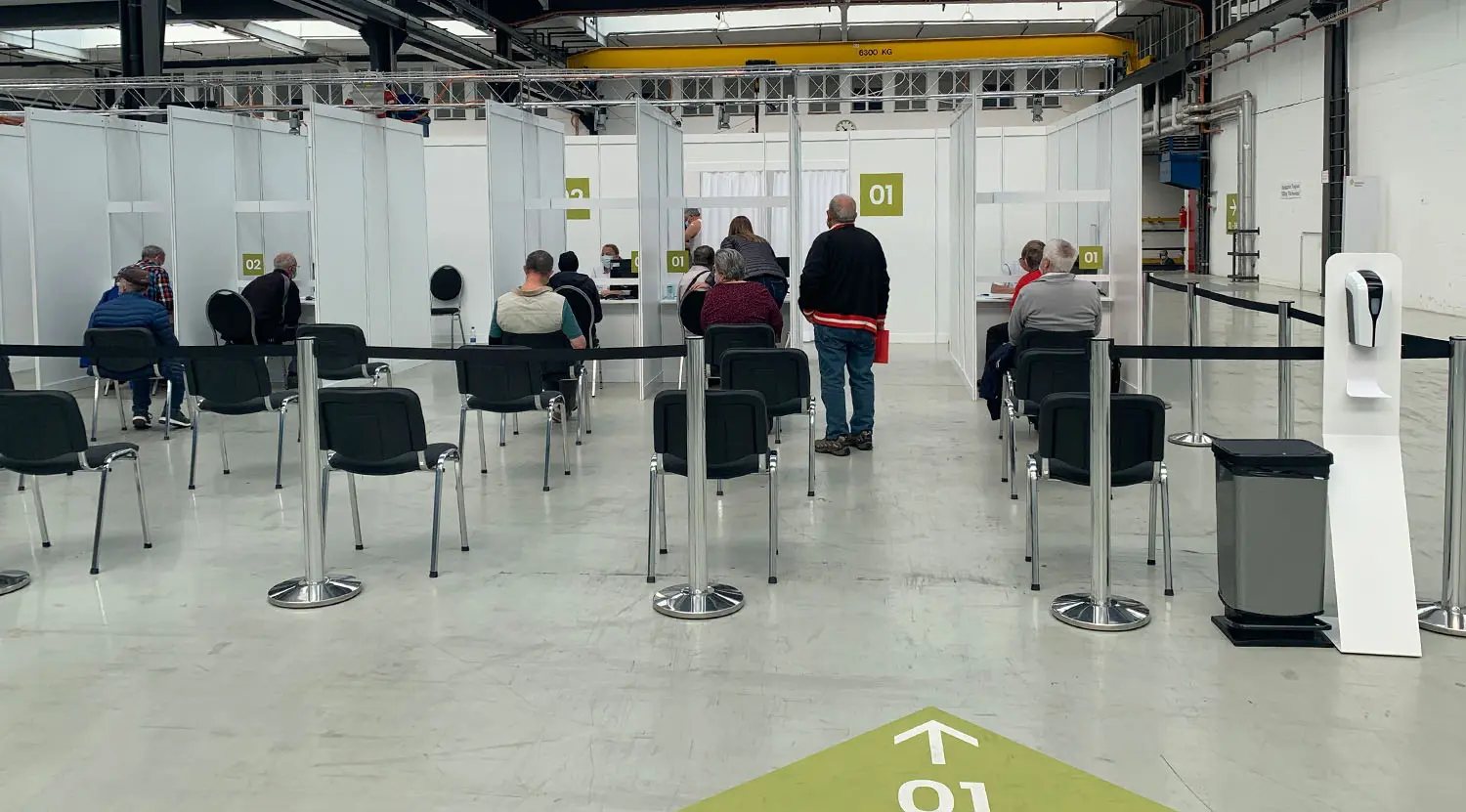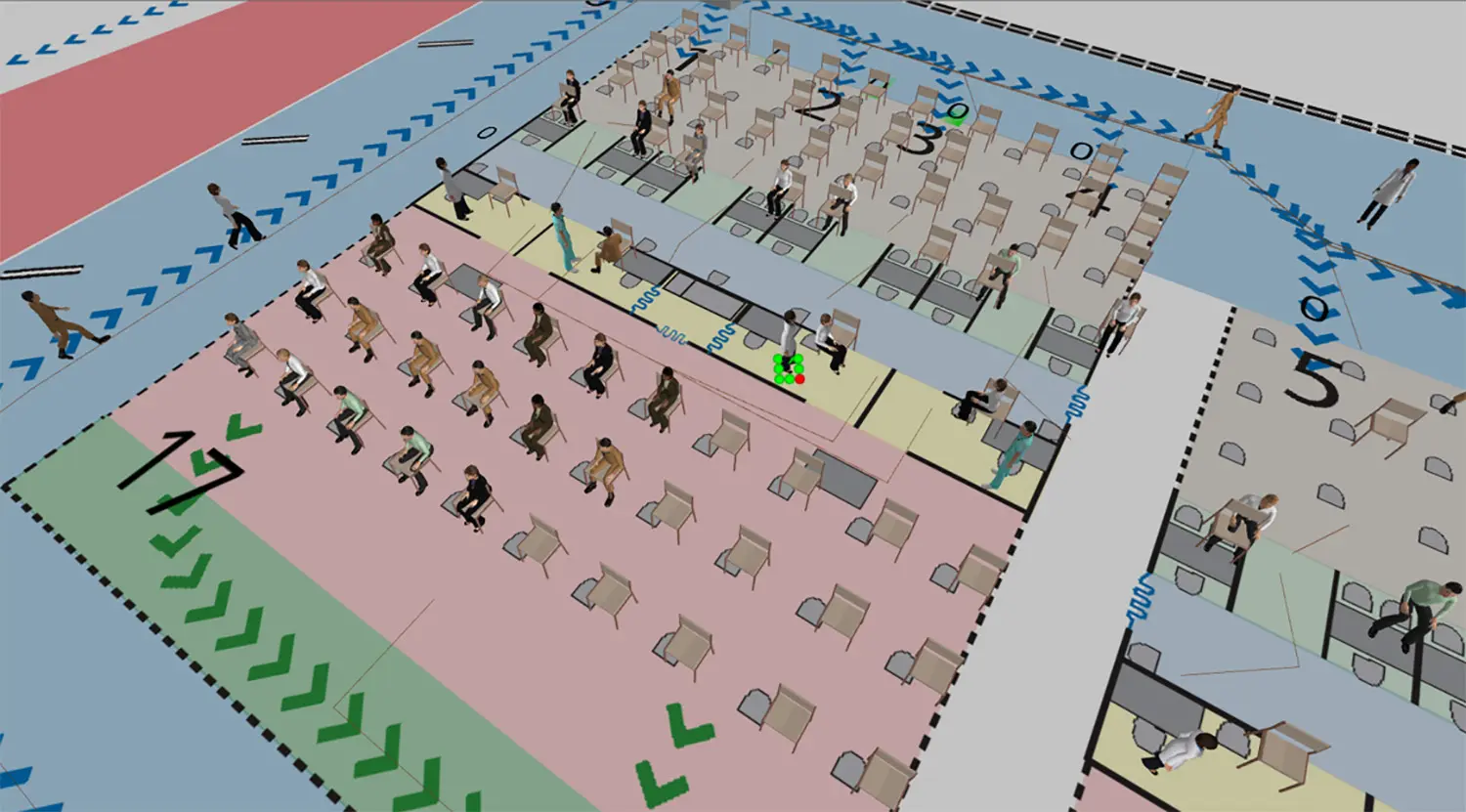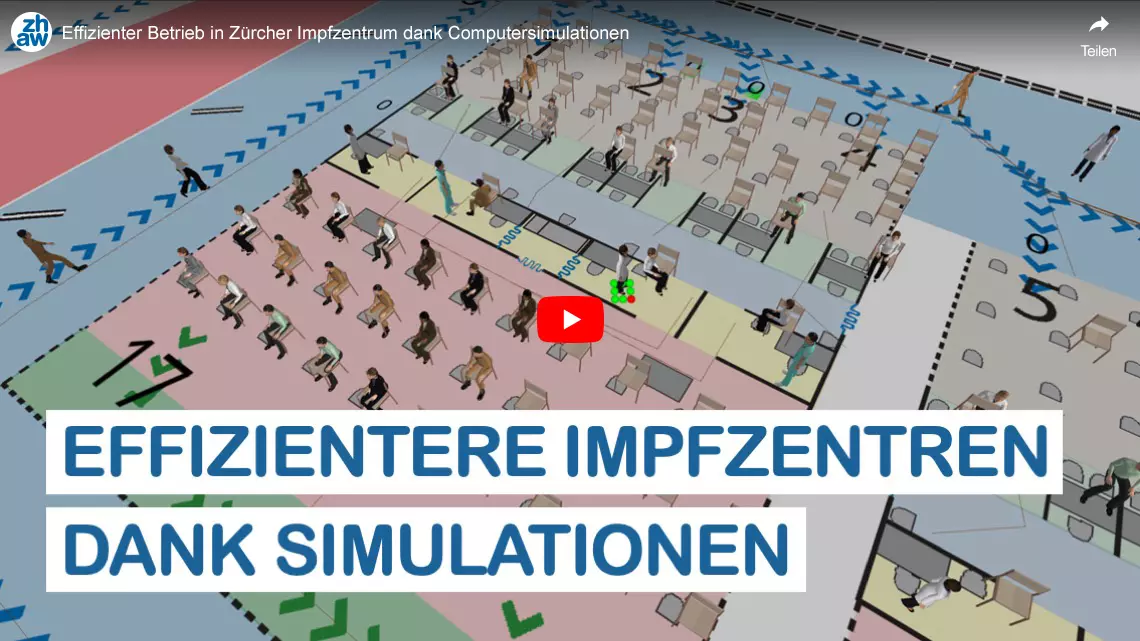Vaccination Center Operates Efficiently: Simulations Show Additional Potential
Computer simulations can be useful in planning and optimizing the processes of vaccination centers. ZHAW has used such a model to study operations at the Winterthur vaccination center. The center was found to have short throughput times and a high quality of service.
Digital simulations make it possible to map the processes in COVID-19 vaccination centers in detail and forecast their effects. This makes it possible, for example, to test different operating options in advance and implement continuous improvement measures. Using the example of the vaccination center in Winterthur in the Canton of Zurich, ZHAW has developed such a solution. It is based on a virtual copy of the vaccination center, detailed time measurements for individual process steps, and a survey of more than 10,000 vaccination clients.
An analysis of the results showed that the vaccination center’s operations, although already very efficient, could be further optimized through targeted process adjustments. For example, the number of people to be vaccinated every day could be increased by up to 20 percent, and queues would be shorter if fewer people arrived early for their appointments. The study, which is unique in Switzerland, was conducted by the ZHAW Winterthur Institute of Health Economics and the ZHAW Institute of Computational Life Sciences in Wädenswil on behalf of the Canton of Zurich Department of Health.
Predictable Client Flow
“Simulations are a very efficient and effective tool for planning highly complex processes such as operations in a vaccination center," according to ZHAW health economist Alfred Angerer. Among other things, they can show how the varying behavior of different user groups affects the outcome. On this basis, the flow of vaccination center clients can be predicted in its entirety, and the consequences of unplanned events, such as the failure of a vaccination line, can be calculated in advance. "Information like this can be crucial in helping those in charge of a vaccination center plan operations and communicate with clients," says Angerer. Ideally, of course, such simulations should be carried out before a center takes up operations.
The findings from the simulation were taken into account in redesigning the Winterthur vaccination center, which reopened at a new location at the beginning of January 2022 after a short break over the holidays. They were also incorporated into the design of pop-up vaccination centers.
High Marks From Users
According to the survey among clients at the vaccination center in Winterthur, the service quality was perceived as very good and waiting times as low. On a scale of 1 to 5, clients rated the quality as 4.5. The average time from entering to leaving the center was around 32 minutes, with the actual vaccination process taking a little less than four minutes on average. This is even slightly shorter than the operators had initially estimated. In other words, the Winterthur vaccination center has been coping well with the daily intake of vaccination clients envisaged originally.
The study also found that less than one percent of clients arrive late for their appointments. In contrast, around 41 percent arrive at least 20 minutes early. This sometimes results in longer queues. "If this was reduced to 10 percent, the longest queue would be around 60 percent shorter, as our simulation shows," explains Angerer.
Contact
Alfred Angerer, Winterthur Institute of Health Economics, ZHAW School of Management and Law, phone: +41 (0)58 934 66 72, email: alfred.angerer@zhaw.ch
Frederic Härvelid, Communications, ZHAW School of Management and Law, phone: +41 (0)58 934 51 21, email: frederic.haervelid@zhaw.ch



